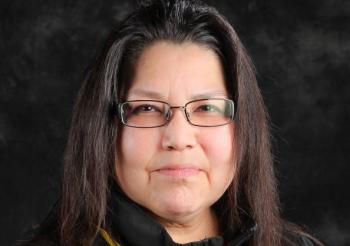Image Caption
Summary
Local Journalism Initiative Reporter
Windspeaker.com
Nearly 3,000 Indigenous households in Ontario’s Kenora district will have access to highspeed Internet no later than the first few months of 2022.
“To have that connectivity is literally priceless,” said Nisaachewan First Nation Chief Lorraine Cobiness.
Chief Cobiness joined ministers Maryam Monsef (rural economic development), Marc Miller (Indigenous Services) and Carolyn Bennett (Crown-Indigenous Relations) Wednesday morning for the virtual announcement. It directs $9.5 million in funding through the $150 million rapid response stream of the federal government’s $1.75 billion Universal Broadband Fund to provide 11 highspeed Internet projects in 17 communities in Ontario.
Monsef also announced that 10 of the 11 projects were led by Indigenous Internet service providers.
“I will note that these Indigenous service providers are connecting Indigenous, as well as non-Indigenous, households to highspeed Internet through this project. That in itself is generous and a reminder that when we support Indigenous communities and enable Indigenous leaders to lead the way, they will help raise many other boats as well,” she said.
Miller pointed out that the pandemic highlighted the “significant” infrastructure gaps that exist between Indigenous and non-Indigenous communities. Highspeed Internet was one of those gaps. It impacted health, education and economics.
“It’s affected the overall quality of life for Indigenous communities. It’s contributed to the widening of socio-economic gaps that exist and persist between Indigenous peoples in Canada and continues to reduce the amount of opportunities that exist for Indigenous peoples to participate in the economy fully in their own communities,” said Miller.
Cobiness said the approved projects are an indication of what can be accomplished with the “power of partnerships,” which sees the federal funding being used in a combined effort of the Kenora Chiefs Advisory and the Kenora District Services Board.
“Access to highspeed Internet will mean that empowerment for all our communities,” she said.
William McCue, councillor for the Chippewas of Georgina Island, also welcomed the opportunity to have highspeed Internet available to his members, who he said are often isolated because of the weather.
“It’s now that we can adapt and have this, and that ability for our community is something that is going to be beneficial in the long term and give our people access to the outside world, the unknowns that are there,” he said.
Cobiness said they would embrace whatever opportunities highspeed Internet provided and would work on initiatives along with the Kenora District Services Board.
“Dealing with increased and better Internet connectivity, we are all in a better place to really focus on other areas around economic development. We're open. We're open for business,” she said.
Monsef said research indicated that communities that had access to highspeed Internet experienced a 28 per cent increase in gross domestic product and their economic impact.
“Undoubtably there will be economic opportunities and jobs created because of this and it's up to the ingenuity and the innovation and the power of partnerships … that will determine which sectors, which opportunities, are unlocked and we’ll be there as partners to support communities as they wish, every step of the way,” she said.
Today’s funding commitment builds on the announcement made in April of investments by both the federal and British Columbia governments to provide cellular coverage along the entire Highway of Tears, Highway 16 from Prince Rupert to Prince George, said Bennett
Investment from Ottawa for that project also comes through the Universal Broadband Fund.
Bennett said providing that cell coverage on the Highway of Tears underscores what the government heard in developing the national action plan and the federal Pathway documents in response to the National Inquiry into Missing and Murdered Indigenous Women and Girls.
“All Indigenous women and girls and 2SLGBTQQIA+ people need to be able to feel safe in their homes and their communities wherever they live. Access to Internet is essential ... It is critical to both … safety and wellness… and that's why today's announcement is so important. We're investing in people, in communities, health, education, the economy and safety,” Bennett said.
Projects approved for the $150 million available through the rapid response stream have to be shovel-ready and completed by the end of the year or the first couple of months into the new year.
The Universal Broadband Fund also provides $50 million to support mobile Internet projects that primarily benefit Indigenous peoples; and $750 million for large impact projects.
Local Journalism Initiative Reporters are supported by a financial contribution made by the Government of Canada.

